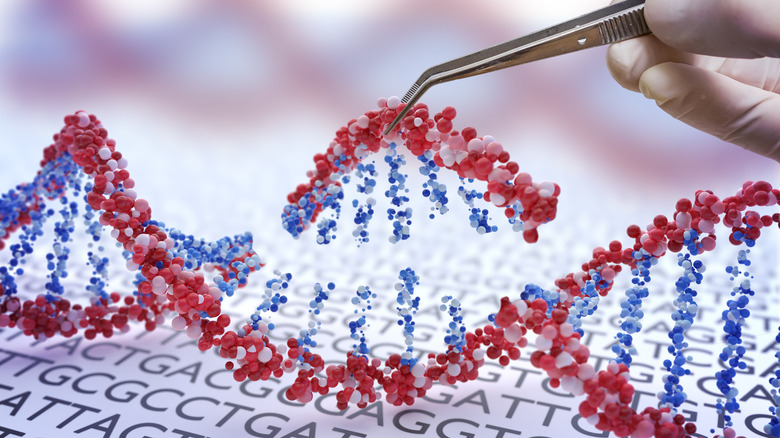New Study Traces Cancer Causes Back To DNA
Significant advances in genome sequencing processes have given scientists in the U.K. an even closer look at how likely certain cancers are to develop, based on a mixture of who your ancestors are and which behaviors you've personally engaged in. Based on data provided by the 100,000 Genomes Project, which sequenced and analyzed over 85,000 NHS participants in December 2018, Cambridge University Professor Serena Nik-Zainal reported new findings on April 21, 2022, which suggest the discovery of 58 new "mutational signatures" that can theoretically help clinicians better determine the cause of cancer in specific circumstances.
Most likely, the bounty of knowledge discovered in these findings so far only serves to indicate that there are additional mutational signatures to discover with further research, which could make certain cancers even easier to detect early on. According to the formal report published in Science, Nik-Zainal and her team at Cambridge have analyzed the data of 18,640 total cancers using the whole-genome sequencing process, or WGS, noting that there's still plenty of room for discovery — and researchers at the NHS are clearly excited to see data produced by the 100,000 Genomes Project be put to good use.
Professor Matt Brown of Genomics England spoke with Cambridge, saying, "Mutational signatures are an example of using the full potential of WGS. We hope to use the mutational clues seen in this study and apply them back into our patient population, with the ultimate aim of improving diagnosis and management of cancer patients."
How this Cambridge study drives cancer research forward
One of the largest takeaways from the recent study is the development of a new genome-sorting algorithm called Signature Fit Multi-Step, or FitMS, designed to cross-reference cancer sequences at a high speed. According to Science, FitMS detects organ-specific signatures and compares those to "additional rare signatures." When applied, this can take some of the heavy lifting out of sequencing new cancer data samples, which should make further cancer research even simpler.
Genomic analysis isn't currently a major part of cancer assessments if the report from Science is any indication. However, it sounds like this advancement could make such methods more commonplace, and that could translate to better cancer patient care in NHS clinics in the near future. Whole-genome sequencing is one of two processes that can be considered "next-generation sequencing," according to Technology Networks. It is the first sequencing method that can sequence the entirety of a genome, which can enable deeper insight into genomes than the alternative method, whole-exome sequencing, which only targets protein-coded regions of the genome.
